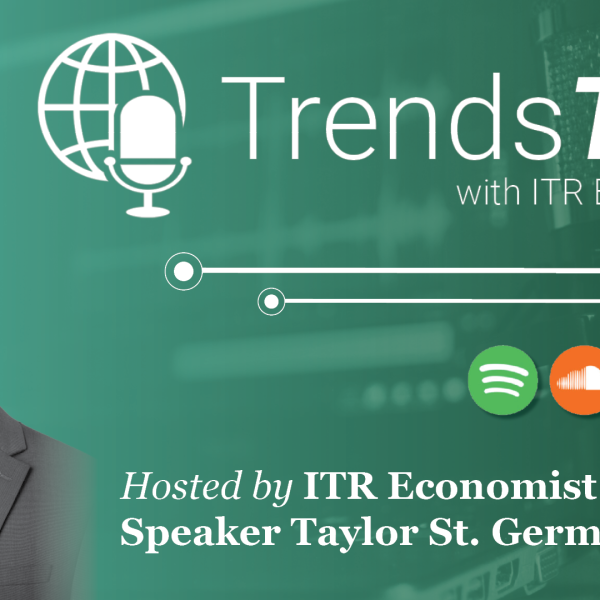- Mon - Fri: 8:30 - 5:00
- +1-603-796-2500
- ITR@itreconomics.com
March 31, 2023
- Home
- portfolio
- TrendsTalk
- March 31, 2023
with michael feuz
PROTESTS IN FRANCE: WHAT IT MEANS FOR YOUR BUSINESS
How could the ongoing protests in France have an impact your business now and in 2024? Tune in to the latest episode of TrendsTalk with ITR Economist and Speaker Michael Feuz to find out!
The below transcript is a literal translation of the podcast audio that has been machine generated by Rev.
Hello, I’m Michael Feuz, an economist here at ITR Economics, and welcome to this episode of TrendsTalk. Today I want to talk to you about the ongoing protests in France following President Emmanuel Macron’s proposed pension reform and what it can mean for your business this year and headed into 2024. The proposed pension reform would raise the retirement age for French citizens from 62 to 64. Pensions’ costs are being blamed for contributing to Francis debt to GDP ratio, reaching 112%. This is up from 98% pre-pandemic. It’s one of the highest in Europe, higher than both Germany and the United Kingdom, two other major economies in Europe. Currently at the age of 62, a French worker can retire and expect to receive about 6,000 euros a month from the French government. About 60 years ago, there were four French workers to support every one French retiree. Today that number’s down to 1.7 workers for every one retiree, and it’s only expected to decline further as this decade goes on. So this has been encouraging President Macron and the French government in pursuing these proposed reforms.
Currently there’s about an estimated 1 million people that have joined the protests which began in mid-January. These numbers are substantially higher than previous recent French protests, thinking back to this past October, and then 2018, there were the yellow vest protests, if you recall. The ongoing protests in France have caused disruption to transportation and to French business activities.
Why is this important to us here in the US and other countries outside of France? Well, France is the seventh largest economy in the world on a GDP basis. It’s also the third largest in Europe. How they were able to accomplish this with a 35-hour work week is still being researched and discussed in universities and think tanks around the globe. France’s fourth quarter GDP came in at a recent high, but that pace of rise is slowing. Now, these recent GDP numbers does not include the impact of the current demonstrations, and France’s industrial economy did enter Phase D recession in mid-2022 well before the protests began, so these protests are not the only factor leading to the decline. France’s leading indicators also in decline with data in through February.
ITR Economics’ forecast for Western Europe industrial production is for mild declines to define 2023 and the majority of 2024. We expect 2023 activity to be about 0.6% lower than 2022, and for 2024 to be down 1.5%, a little bit more over 2023. Overall, disruption caused by the protests is likely to be isolated and short term. France has a proud history of demonstrations, and as mentioned earlier in this podcast episode, this is not the first time even recently we have witnessed like disruptions. This does not alter our forecast for Europe, and if Europe is part of your business market, keep this in mind and do not give in to any sentiments to overreact or drastically change your plans or strategy in 2023.
Here at ITR Economics, we have been forecasting a great depression to take hold in 2030. And with the aging demographics being one of the primary drivers of the downturn, these proposed pension reforms by the French government which the French people are protesting aggressively over, are being driven by those same variables, an aging demographic, and to address these realities of these changings and is putting more pressure on government spending.
So, there you have it. While the images of the French protests we see in major media outlets can cause a variety of emotions and sentiments, overall they should have short-term and minor disruptions on the French and European macro-economies. Continue to prepare your business for an environment of overall global slowing growth, we’re already seeing decline in France, and economic activity through this year before a more substantial downturn in 2024 driven primarily by the policies pursued by central banks in the US and Europe and elsewhere. Thank you for joining me here on TrendsTalk. My name is Michael Feuz, I’m an economist here ITR Economics. I look forward to hearing from you and speaking with you on the next episode.





